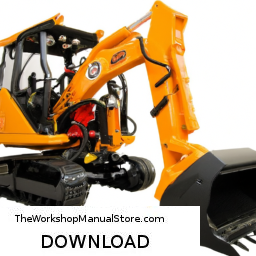
Replacing the gearbox synchronizer on a Case CX145C SR involves several critical steps that can be complex. Get the complete download manual—click here……
- Alternator 87709229 for Case Excavator CX130B CX130C CX135SR CX145C SR CX160B CX160C Alternator 87709229 for Case Excavator CX130B CX130C CX135SR CX145C SR CX160B CX160C Isuzu Engine …
- Excavator review – Case CX145C walk-around // EEA Group 00:00 – Intro 00:17 – Engine 00:36 – Exterior Features 03:10 – Interior Features Case CX145C walk-around with the EEA Group …
Below is a reverse order explanation of how to perform this replacement:
### 7. Reassemble the Gearbox
– Carefully place all components back into their original positions.
– Ensure all gears, bearings, and seals are properly seated.
– Replace any O-rings or gaskets that were removed during disassembly to prevent leaks.
### 6. Install the New Synchronizer
– Position the new synchronizer in the gearbox.
– Ensure it aligns correctly with the gears and other components.
– If applicable, apply any necessary lubricant or assembly grease to ease the installation.
### 5. Reinstall Gearbox Covers
– Place the gearbox cover back onto the assembly.
– Secure it with the appropriate fasteners, ensuring to torque them to the manufacturer’s specifications.
### 4. Remove the Old Synchronizer
– Use a suitable tool to carefully extract the old synchronizer from its housing.
– Take care not to damage surrounding components during this process.
### 3. Disassemble the Gearbox
– Drain the gearbox oil to prevent spills during disassembly.
– Remove the necessary fasteners and components to access the gearbox internals.
– Keep track of all parts and their order for reassembly.
### 2. Prepare the Workspace
– Gather all necessary tools and replacement parts, including the new synchronizer.
– Ensure you have a clean and organized workspace to facilitate the process.
### 1. Safety Precautions
– Disconnect the machine’s battery and ensure it is secure.
– Wear appropriate personal protective equipment (PPE) such as gloves and safety goggles.
### Final Steps
– After the replacement is complete, refill the gearbox with the correct type and amount of oil.
– test the machine to ensure the synchronizer is functioning correctly and there are no leaks.
### Note
Always refer to the manufacturer’s service manual for specific instructions, torque specifications, and safety warnings related to the case CX145C SR. This procedural guidance is a basic overview and may not cover all necessary steps or precautions specific to your machine.
The key is a crucial component in the mechanical devices made of metal, designed to physically engage with the lock mechanisms of a vehicle. These keys would be inserted into the ignition switch to start the engine and often included a separate key for the door locks. However, with advancements in technology, the design and functionality of car keys have evolved significantly.
Modern cars often utilize electronic keys, also known as smart keys or key fobs. These keys incorporate advanced technology, including radio frequency identification (RFID) and transponder systems. When the key is in proximity to the vehicle, it communicates wirelessly with the car’s onboard computer, allowing for keyless entry and ignition. This means drivers can unlock doors and start the engine without physically inserting the key, enhancing convenience and security.
Moreover, many vehicles now feature remote start capabilities, allowing owners to start their engines from a distance, a boon in inclement weather. The integration of keyless entry systems also reduces the risk of lockouts, as the car can recognize the key within a certain range.
Despite their technological advancements, keys remain a vital aspect of car security. They are designed to prevent unauthorized access to the vehicle, often incorporating encryption and unique codes that change with each use. This enhances the overall security of the vehicle and protects against theft. As automotive technology continues to progress, the role of the key will likely evolve further, potentially integrating with mobile devices and digital applications, creating a seamless and secure driving experience.